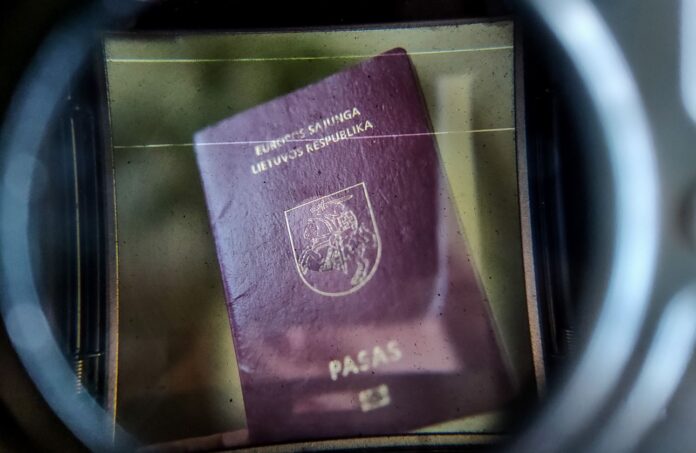
According to a poll by Baltijos Tyrimai, with six months left until the referendum, six out of 10 Lithuanian citizens support the retention of Lithuanian citizenship for those who acquired citizenship of another country friendly to Lithuania. This list includes countries of the European Union, NATO, the European Economic Area and the Organisation for Economic Co-operation and Development.
According to the survey, 60 percent support the retention of Lithuanian citizenship, 26 percent oppose it, and 14 percent have no opinion or did not answer the question. The poll involved 1,013 Lithuanian residents aged 18 and over.
The referendum on the retention of Lithuanian citizenship will be held on May 12 next year, in conjunction with the first round of the presidential election. Lithuania held a referendum on dual citizenship in 2019, but there were not enough votes for such a change.
The Constitutional Court has clarified that only a referendum amending the Constitution can open the possibility of dual citizenship to Lithuanian citizens who have acquired citizenship of other countries since the restoration of Lithuania’s independence.
The survey data reveals that citizens’ attitudes towards dual citizenship have not changed substantially since the last referendum, according to Constitutional Law Expert Ingrida Danėlienė. “The support for multiple citizenships is currently 60 percent. Taking into account the expected voter turnout, which is also unlikely to exceed 60 percent, we can expect similar results to the 2019 referendum,” she told LRT.lt.
Marius Gurskas, head of the Government’s Communications Department, noted that question to be voted on in the referendum will be simple – whether people who have acquired Lithuanian citizenship by birth will be able to keep it if they acquire citizenship of another country friendly to Lithuania. “We are certainly not saying that Lithuanian citizenship will be given to everyone. We are talking about the possibility to keep it for those who have it,” said Gurskas.
According to him, there are various reasons why Lithuanians accept citizenship of another country. “Most often those are family circumstances or when people leave for work or other reasons and have to make a choice [to acquire the citizenship of another country] to have better career prospects,” Gurskas said.
There have also been situations involving professional athletes. For example, a Lithuanian volleyball player was invited to play in the Olympics for the Italian national team. This created a a dilemma. The athlete feels that she is a citizen of Lithuania, and loves her country. Unfortunately, the current Constitution doesn’t allow her to retain Lithuanian citizenship if she has acquired another country’s citizenship, explained Gurskas. The countries friendly to Lithuania include those belonging to the European Union, NATO, the European Economic Area, or the Organization for Economic Co-operation and Development.
“Lithuania would not be the first EU country to offer this possibility of retaining citizenship. Of the 27 EU countries, 22 allow it. There are only five countries – Lithuania, Estonia, the Netherlands, Slovakia, and Austria – that do not allow citizens to also hold citizenship of another country,” he said. On average, about 1,000 Lithuanians lose their Lithuanian citizenship every year because they acquire the citizenship of another country.
Gurskas also pointed out that there are several myths surrounding the question of dual citizenship. Among the most popular ones are those about additional taxes or benefits.
“It would not create any additional privileges if dual citizenship was approved. In reality, both taxes and social benefits depend on the area where you live. We pay taxes on the income we earn in that country,” Gurskas said.



























